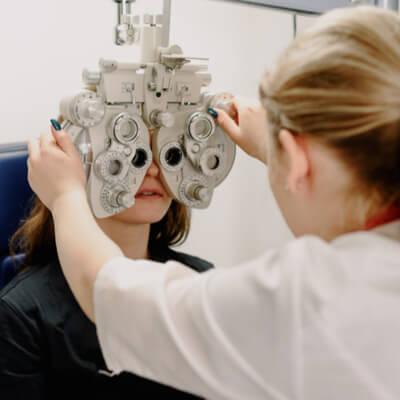A Tour of the mySugr app!
Living with diabetes requires a constant stream of data logging to effectively manage the day-to-day demands of living with diabetes. Luckily, the mySugr app is leading the charge at simplifying all this information right at your fingertips! 8 Cool Features of the mySugr app We know that the daily grind can get overwhelming. And burnout is real! That's why the goal of mySugr has always been to make diabetes suck less! The mySugr app is a huge piece of that effort and we...
Read MoreHow To Quit For Good
Smoking is extremely harmful to your health, and this is especially true for people living with diabetes. It increases the existing risk of cardiovascular disease, stroke, eye problems and nerve damage, plus it increases insulin resistance. If you’re ready to stop smoking—you have to do it for your own sake, and willingly—we have a few tips to help you. First of all… Set a quit date within 30 days. Mark your calendar, tell your friends and family about it so you don’t back out when the day comes, and sign a symbolic quitting contract (it’s not...
Read MoreProtecting Your Smile When You Have Diabetes
Diabetes increases the risk of mouth problems, but this has (almost) nothing to do with your sugar intake. The main culprit is actually hyperglycemia. The effect of blood glucose Your body can react in many different ways to improperly managed blood glucose. You produce less saliva, and the smaller amount you do produce contains more glucose, which can lead to dry mouth, ulcers, tooth decay or yeast infections. Due to hyperglycemia, there is increased glucose in the saliva which promotes the spread of bacteria, decreases nutrient...
Read MoreDiabetes friendly dark chocolate dessert
Dark chocolate bark - a diabetes friendly desserts indulgence Don't get us wrong—even though it's rich in antioxidants, dessert recipes with dark chocolate aren't exactly healthy food. However, because it packs huge flavor into a small serving, you can get that sweet tooth satisfied when you crave without digging deep into the sweet cookie jar. This recipe uses Christmas colors, but you can substitute any nuts or dried fruit you prefer. No Bake and Low Carb Dark Chocolate Bark...
Read MoreFive Little Mistakes Everyone Makes
Managing diabetes is quite the juggling act. Between your treatments, your busy schedule and your blood glucose measurements, it’s normal to sometimes run out of time or forget a few details. So don’t beat yourself up if you make one of the small mistakes listed below. Of course, if you can avoid them, all the better! 1- Skipping breakfast. After a night of sleep, your blood sugar level is usually higher, and your body needs fuel. Plan quick and healthy meal options for chaotic mornings: oatmeal, fruits and whole grain cereals, for example. 2- Guessing the carbs. By now...
Read MoreA Stockpile Of Snacks
When you need to eat something, there’s only one defense against fast food restaurants: be prepared! Lunch ideas Low-sodium vegetable or minestrone soup Veggie chili Tuna salad with low-fat mayonnaise, diced celery, lemon juice and peppercorns in a whole wheat tortilla Whole wheat pita with turkey, hummus, dried tomatoes, feta cheese and spinach Quinoa salad with red beans, broccoli, coloured...
Read MoreTalking about diabetes at school
So your child is starting school, attending a new one, or switching classes? If they’re living with diabetes, one thing’s for sure: they will have to talk about their disease with those around them. Let’s take a look at a few tips to smooth out communication as much as possible.Build confidence Talking about diabetes will come naturally to some, and not so much to others. Children don’t want to be treated differently from others, and many fear rejection and mockery. It’s important to discuss the issue openly at home and make it clear to your child that they don’t have to be ashamed of diabetes. Make...
Read MoreA Quick Overview Of Oral Medications
For type 1 diabetes With type 1 diabetes, you need to take insulin your whole life, since your body won’t produce any. It must be administered through injections or using a pump. If you’re wondering why no one has invented an insulin pill yet, that’s because stomach enzymes would make short work of it. In addition to insulin therapy, managing type 1 diabetes also requires exercising, eating a proper diet and monitoring blood glucose. Some oral medicines are sometimes prescribed to complement this. These include the following: Blood pressure medications...
Read MoreWhen Diabetes Goes For The Eyes
It’s not a myth: diabetes can really affect eye health. Blood glucose, cholesterol levels and blood pressure are all variables that can cause serious long-term damage and, in the worst-case scenario, blindness. That’s why it’s so important to discuss this issue and focus on prevention. Here’s a quick overview to help you see the big picture. Glaucoma Glaucoma occurs when pressure builds up in the eye and damages the optic nerve and blood vessels. This disease causes a gradual loss of vision, starting with the periphery, and can...
Read MorePages
How To Quit For Good
Smoking is extremely harmful to your health, and this is especially true for people living with diabetes. It increases the existing risk of cardiovascular disease, stroke, eye problems and nerve damage, plus it increases insulin resistance. If you’re ready to stop smoking—you have to do it for your own sake, and willingly—we have a few tips to help you. First of all… Set a quit date within 30 days. Mark your calendar, tell your friends and family about it so you don’t back out when the day comes, and sign a symbolic quitting contract (it’s not...
Read MoreProtecting Your Smile When You Have Diabetes
Diabetes increases the risk of mouth problems, but this has (almost) nothing to do with your sugar intake. The main culprit is actually hyperglycemia. The effect of blood glucose Your body can react in many different ways to improperly managed blood glucose. You produce less saliva, and the smaller amount you do produce contains more glucose, which can lead to dry mouth, ulcers, tooth decay or yeast infections. Due to hyperglycemia, there is increased glucose in the saliva which promotes the spread of bacteria, decreases nutrient...
Read MoreDiabetes friendly dark chocolate dessert
Dark chocolate bark - a diabetes friendly desserts indulgence Don't get us wrong—even though it's rich in antioxidants, dessert recipes with dark chocolate aren't exactly healthy food. However, because it packs huge flavor into a small serving, you can get that sweet tooth satisfied when you crave without digging deep into the sweet cookie jar. This recipe uses Christmas colors, but you can substitute any nuts or dried fruit you prefer. No Bake and Low Carb Dark Chocolate Bark...
Read MoreFive Little Mistakes Everyone Makes
Managing diabetes is quite the juggling act. Between your treatments, your busy schedule and your blood glucose measurements, it’s normal to sometimes run out of time or forget a few details. So don’t beat yourself up if you make one of the small mistakes listed below. Of course, if you can avoid them, all the better! 1- Skipping breakfast. After a night of sleep, your blood sugar level is usually higher, and your body needs fuel. Plan quick and healthy meal options for chaotic mornings: oatmeal, fruits and whole grain cereals, for example. 2- Guessing the carbs. By now...
Read MoreA Stockpile Of Snacks
When you need to eat something, there’s only one defense against fast food restaurants: be prepared! Lunch ideas Low-sodium vegetable or minestrone soup Veggie chili Tuna salad with low-fat mayonnaise, diced celery, lemon juice and peppercorns in a whole wheat tortilla Whole wheat pita with turkey, hummus, dried tomatoes, feta cheese and spinach Quinoa salad with red beans, broccoli, coloured...
Read MoreTalking about diabetes at school
So your child is starting school, attending a new one, or switching classes? If they’re living with diabetes, one thing’s for sure: they will have to talk about their disease with those around them. Let’s take a look at a few tips to smooth out communication as much as possible.Build confidence Talking about diabetes will come naturally to some, and not so much to others. Children don’t want to be treated differently from others, and many fear rejection and mockery. It’s important to discuss the issue openly at home and make it clear to your child that they don’t have to be ashamed of diabetes. Make...
Read MoreA Quick Overview Of Oral Medications
For type 1 diabetes With type 1 diabetes, you need to take insulin your whole life, since your body won’t produce any. It must be administered through injections or using a pump. If you’re wondering why no one has invented an insulin pill yet, that’s because stomach enzymes would make short work of it. In addition to insulin therapy, managing type 1 diabetes also requires exercising, eating a proper diet and monitoring blood glucose. Some oral medicines are sometimes prescribed to complement this. These include the following: Blood pressure medications...
Read MoreWhen Diabetes Goes For The Eyes
It’s not a myth: diabetes can really affect eye health. Blood glucose, cholesterol levels and blood pressure are all variables that can cause serious long-term damage and, in the worst-case scenario, blindness. That’s why it’s so important to discuss this issue and focus on prevention. Here’s a quick overview to help you see the big picture. Glaucoma Glaucoma occurs when pressure builds up in the eye and damages the optic nerve and blood vessels. This disease causes a gradual loss of vision, starting with the periphery, and can...
Read More








